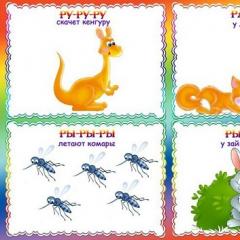An unprecedented autumn built a high dome. An unprecedented autumn built a high dome It was the sun like a rebel who entered the capital
An unprecedented autumn built a high dome,
The clouds were ordered not to darken this dome.
And people wondered: the September dates are passing,
Where have the cold, wet days gone? ..
The water of the muddy channels became emerald,
And the nettle smelled like roses, but only stronger,
It was stuffy from the dawn, unbearable, demonic and scarlet,
We all remembered them to the end of our days.
The sun was like a rebel who entered the capital,
And the spring autumn caressed him so eagerly,
What it seemed - now the transparent will turn white
snowdrop...
That's when you, calm, approached my porch.
 Anna Akhmatova
Anna Akhmatova
The poem was written in 1922 and is dedicated to N.N. Punin, who later became her third husband. This poem was to be included in the collection "Reed". Since the mid-1920s, Anna Akhmatova's poems have not appeared in print, and this collection has not been published either. Twenty poems from it were published only in 1940 in magazines. The mystery, the magic of Akhmatova's poems ... Her verse is clear, clear, but scattered strokes outline a gaping field of meaning. Spring autumn is a premonition of love, an omnipotent feeling that engulfed all nature and people. The whole universe is engulfed in love excitement, autumn itself greedily caresses the sun. Spring and autumn are the beginning and end of life, successive seasons as well as the seasons of life. In autumn, sensations always become sharper, since behind them is the knowledge of reality, the desire, freed from the accidental, superficial, to see the essence of things, the light hidden behind the clouds. Remembering spring roses, in autumn love is seen differently (nettle), but "the nettle smelled like roses, but only stronger."
Of all her great contemporaries, her peers, Anna Akhmatova is most involved in that mysterious, transcendent, "Lermontov's" ancestral memory, which leads from the earthly vale to "nowhere" and returns to life "from nowhere."
A strong spirit and will to live appear in the 1922 poem "An unprecedented autumn built a high dome ..." , optimistic, more precisely, peaceful. Its appearance was preceded by the hardships of times Civil war, the hardest losses, the failure of attempts to arrange a personal life. Eleven lines out of twelve - an unfolded landscape, a picture of an extraordinary "spring autumn". And it turns out that the last, unexpected verse “That's when you, calm, came to my porch” is the main one, for the sake of which the whole poem was written. Someone unnamed, and even calm (the most "inexpressive", seemingly meaningless epithet, but how reassuring is this calm compared to the imaginary calmness of a terribly smiling suffering person and cheerful calmness " true friend”!) Appeared in front of the heroine, and this turned out to be extremely important for her. She already dreams not of happiness, but, like 35-year-old Pushkin in the poem “It's time, my friend, it's time! my heart asks for peace ... ”, only for peace, and we suddenly realize to what extent she, marveling together with other people of an unprecedented autumn, lacked this peace. Akhmatova is already thirty-three years old: according to the then concepts, youth ends. By 1922 the beginning of her relationship with the art critic N.N. Punin, which turned into a long living together, although they did not bring happiness, and indeed peace of mind. So far, the heroine of the poem hopes, albeit not for the best, but for the good.
Autumn is personified: it builds a dome of the sky, forbids the clouds to “darken” it, “greedily” caresses the sun. Gradually, personification is supplanted by a personal human position. The perception of surprised people becomes more specific: emerald water is visible in the canals, nettle smells like roses, “it was stuffy from the dawn, intolerable, demonic and scarlet” (the epithet “scarlet”, which came to rhyme, in this context is not purely color, it meaning than “intolerable” and even “demonic”), such that “we all remembered them to the end of our days” - no longer people in general, but “all of us” and until the end of days, the heroine is sure of this, although about the soon death, unlike the heroines of "Evening" and "Rosary", does not think at all. The word “we” is also highlighted by a metric interruption: a solemn, extended 5-foot anapest loses two syllables inside the verse, including the stressed one, the line splits into two metrically identical hemistichs (two feet each), the pause emphasizes the seriousness of the expected - “until the end of our days ”. In the last quatrain, where a comparison of the sun with a fearless rebel arises (autumn rebelled) and the image of a snowdrop, a flower of a “new”, reviving life appears, “we” is replaced by “I”, albeit in the form possessive pronoun(“To my porch”), - corresponding to the poem “you” that appeared unexpectedly, but prepared by the whole system. In this quatrain, precise rhymes, even meter. The verse is harmonized in the same way as the content.
(Diary entry of a former teacher)
Today is the first day of calendar autumn. But the heat of the day does not subside. It froze over our land, it hangs motionless under a high heavenly dome and it is not known when it will dissolve, it will melt in the obligatory coolness of September, which, of course, will inevitably come.
However, not a single forecast of weather forecasters dares to say something definite. And this despite the fact that professional "forecasters" are armed with amazingly accurate technology. They have clear satellite data explaining what happens to our cute "ball", which rotates on its axis, flies around the sun in its orbit. But the “forecasters” are not yet able to correctly warn people what will happen to the weather. Nature is stronger than them, more mysterious. If she reveals her secrets, then these “outcrops” are ominous: rains with floods, tornadoes, hurricanes ...
I look at the distant distances outside the city, edged by the teeth of the forest. They are alert and dumb. There is not even a vague movement in them. Trying to find yourself folk signs who will tell you what will happen tomorrow. There were clouds and tangled hair in the sky. Everything seems to portend an imminent bad weather, first autumn rains, but the same signs were there yesterday and the day before yesterday, and the motionless heat stands over the edge and disappears little even at night. Immobile, sultry soundless envelops the entire forest outside the city and the skies above it.
The feeling of dry land and lack of water around is such that you already look at the meadows by the lake as at a dry African shroud, which has not rained for six months. The hemlock has dried up to blackness, the sow thistle is pubescent, and even from a light breath of the breeze, weightless white balls fly one after another from its stems, causing damage to meadows and abandoned fields with impudently fertile seeds next year. Only goldenrod blooms violently, covering empty fields and ravines with lemon color.
And the hot shine of the sun sows the heat. It crackles in the dead chestnut foliage, whispers softly in the birch strands and rare golden patches on them. From time to time they silently fly off the strands to the fleecy green under their shadow, and the green darkness of the birch feet is decorated with early gold.
However, the dull heat, which has lingered since summer, will dispel joy for an hour or two: childish voices are heard, the trills of the first bell are heard throughout the schoolyards, calling, solemn sounds, to which a long-standing anxiously loving feeling, inextinguishable, like first love.
And no matter how the heat dries up your heart, or the old age saddens with illnesses, the first September day will remind you of your living youth, remember the wonderful school noise of the children, unforgettable meetings with her, sitting at the desks, a little wary, but did not have time to extinguish the playful gaiety in herself.
You used to try to put on some semblance of severity, but it doesn't work. And already you smile at the children broadly, openly, and the spirit of belonging, empathy envelops you and their unity on the eve of arduous campaigns for Knowledge. Children used to study, and I also studied.
And on all school lines there are songs. And this one too: "What is snow for me, what is heat for me, / What is pouring rain for me, / When my friends are with me!"
And the first autumn days are surprisingly unprecedented. Anna Akhmatova probably spoke about such days: “An unprecedented autumn built a high dome, / There was an order for the clouds not to darken this dome….”
So now: the order has been fulfilled, the sky is clear and high, not a cloud on it. I would like there to be an order from somewhere not to darken my own soul with gray clouds.
"An unprecedented autumn built a high dome ..." Anna Akhmatova
An unprecedented autumn built a high dome,
The clouds were ordered not to darken this dome.
And people wondered: the September dates are passing,
Where have the cold, wet days gone? ..
The water of the muddy channels became emerald,
And the nettle smelled like roses, but only stronger,
It was stuffy from the dawn, unbearable, demonic and scarlet,
We all remembered them to the end of our days.
The sun was like a rebel who entered the capital,
And the spring autumn caressed him so eagerly,
What it seemed - now the transparent will turn white
snowdrop…
That's when you, calm, approached my porch.
Analysis of Akhmatova's poem "An unprecedented autumn built a high dome ..."
The poem "An unprecedented autumn built a high dome ..." was written in 1922. Initially, Akhmatova wanted to include it in the collection "Reed". It did not appear in print, since in the 1920s the works of the poetess - both old and new - practically ceased to be published. The composition of the analyzed text is reminiscent of Pushkin's unfinished poem "Autumn", dated 1833. In Alexander Sergeevich's nine stanzas, from afar, bring the reader to the main thing - the minute when the poems are about to flow freely. For Akhmatova, the last line becomes the percussion line. The central event of the work is the arrival of the man's lyric heroine: "That's when you, calm, approached my porch." Most likely, this refers to the art critic Nikolai Nikolaevich Punin. Anna Andreevna lived with him in a civil marriage for about fifteen years, having met in the early 1920s. At the time of writing the poem in question, the poetess did not yet know what to expect from a new relationship, but she clearly hoped for a happy future. At the same time, do not forget that the previous marriage was unsuccessful for her. The second husband - an outstanding orientalist Vladimir Kazimirovich Shileiko - became a real tyrant for Akhmatova. Naturally, after all she had experienced, the appearance of Punin was perceived by her almost as a miracle, a ray of light in a dark kingdom.
A significant part of the poem "An unprecedented autumn built a high dome ..." - a description of the landscape. The readers are invited to fall not quite ordinary, this does not happen every year. She erected a high dome, not obscured by clouds. The cold does not come for a long time, the water of the turbid Petersburg canals became emerald, like nettles smelled like roses, but only stronger. Autumn in the analyzed text is more like spring - it seems that snowdrops are about to appear. The senses lyric heroine so strong that for her the whole world, illuminated by a sun like a rebel, becomes engulfed in love excitement. Moreover, we are talking not only about nature, but also about people surprised by the changes taking place. Love gives hope for the best, for rebirth. The seasons in the poem are the personification of the cycles of human life. Autumn - old age, sunset. Spring is youth, the beginning. For the lyrical heroine, love is also an opportunity to regain youth, at least for a short while rejecting the inexorably approaching death.
An unprecedented autumn built a high dome,
The clouds were ordered not to darken this dome.
And people wondered: the September dates are passing,
Where have the cold, wet days gone? ..
The water of the muddy channels became emerald,
And the nettle smelled like roses, but only stronger,
It was stuffy from the dawn, unbearable, demonic and scarlet,
We all remembered them to the end of our days.
The sun was like a rebel who entered the capital,
And the spring autumn caressed him so eagerly,
What it seemed - now the transparent will turn white
snowdrop...
That's when you, calm, approached my porch.
 Anna Akhmatova
Anna Akhmatova
The poem was written in 1922 and is dedicated to N.N. Punin, who later became her third husband. This poem was to be included in the collection "Reed". Since the mid-1920s, Anna Akhmatova's poems have not appeared in print, and this collection has not been published either. Twenty poems from it were published only in 1940 in magazines. The mystery, the magic of Akhmatova's poems ... Her verse is clear, clear, but scattered strokes outline a gaping field of meaning. Spring autumn is a premonition of love, an omnipotent feeling that engulfed all nature and people. The whole universe is engulfed in love excitement, autumn itself greedily caresses the sun. Spring and autumn are the beginning and end of life, successive seasons as well as the seasons of life. In autumn, sensations always become sharper, since behind them is the knowledge of reality, the desire, freed from the accidental, superficial, to see the essence of things, the light hidden behind the clouds. Remembering spring roses, in autumn love is seen differently (nettle), but "the nettle smelled like roses, but only stronger."
Of all her great contemporaries, her peers, Anna Akhmatova is most involved in that mysterious, transcendent, "Lermontov's" ancestral memory, which leads from the earthly vale to "nowhere" and returns to life "from nowhere."


